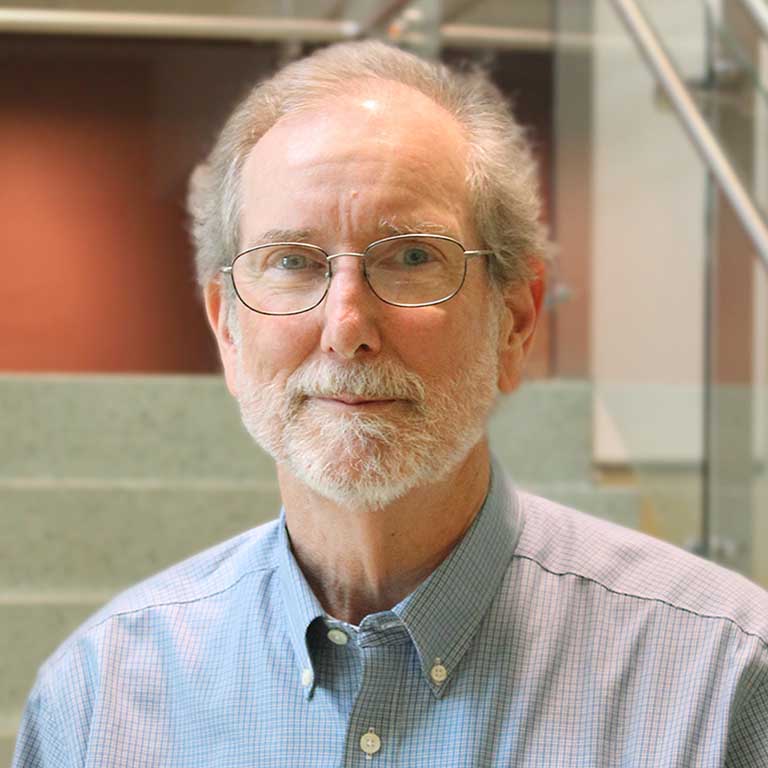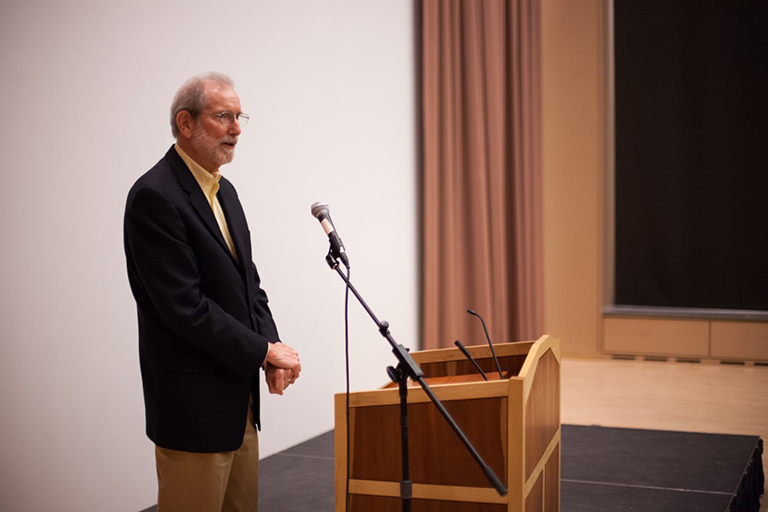5 Questions with …
John E. Bates
Professor, Psychological and Brain Sciences, College of Arts & Sciences
Director of Clinical Training
Many parents would say, "Duh. Why would you have to do research on that?"
John E. Bates
Professor, Psychological and Brain Sciences, College of Arts & Sciences
Director of Clinical Training
John E. Bates has been a faculty member in IU’s Department of Psychological and Brain Sciences for nearly 50 years. His research goal is to learn more about the development of children's behavior problems and social competencies. With his colleagues and students,and the support of IU and external grants,he has considered an array of theoretically important influences on development, including family interactions, children’s ways of thinking about social conflict, temperament of both children and their parents, sleep qualities of both children and their parents, and broader socioeconomic variables, including characteristics of neighborhoods.

Bates received his B.S. in psychology from the University of Washington and his Ph.D. in clinical psychology from the University of California Los Angeles. After graduating from UCLA, he joined IU’s faculty as an assistant professor in 1973, with promotion to associate professor in 1977 and full professor in 1983. He received a Fulbright Award in 1985 to work at the University of Leiden in the Netherlands. Bates has served as a member of the board of directors of several local human service organizations and is a consulting editor for Infant Behavior and Development, Journal of Child Psychology and Psychiatry, and Parenting: Science and Practice. He was recently named as the 2022 recipient of the Ernest R. Hilgard Lifetime Achievement Award from Division 1 of the American Psychological Association.
Q: What led you to Indiana University and what has continued to motivate you in your research?
A: IU was appealing to me because the department has a strong history, the faculty understood what was interesting about my research, and they had built a supportive, hospitable environment. I’ve been motivated in my research by curiosity about how people’s individual characteristics develop and how people can be helped to have better lives. These processes are very complex and it is difficult to measure them empirically. But the challenges and bits of progress keep me going.
Q: What has surprised you or particularly interested you in your current research? What do you want people to know about why your research is important?
A: I would offer four useful ideas that our research has contributed to:

Q: What was your reaction to learning you are the recipient of a lifetime achievement award from the American Psychological Association?
A: I felt greatly honored by the people who nominated me—their appreciation means so much—and then by the people I had long admired on the committee that chose me. And then, the congratulatory words from colleagues and friends have further honored me. I am also grateful that the work of so many people I’ve worked with over the decades has, in effect also been recognized. All of my research work has been as a part of teams—undergraduate and post-graduate assistants, graduate students, postdocs, and colleagues at IU and beyond. The work has also depended on the participation of children, their parents, teachers, and other caregivers.
Q: What are you reading in your free time this summer and what do you recommend?
A: I am reading multiple books. I like books especially about history and sometimes current events, economics, and science, including psychology, of course. I read several novels or collections of stories in the typical year, too. I also sometimes read books about nature. One is The Forest Unseen by David George Haskell, suggested to me by a naturalist friend. It enhanced my hikes in the woods and was also enjoyed by friends I hike with. I went to the bookstore the other day in search of a new book, African Founders, by a favorite historian, David Hackett Fischer and by chance, I also encountered an unusual book, The Last Wilderness by Murray Morgan, originally published in 1955 and republished with an updated introduction in 2019. It happens to be about the history of the part of the country I’ll be re-exploring with my adult kids on vacation this summer, the Olympic Peninsula in Washington State.
Q: What is your favorite place to spend time on the IU Bloomington campus (or in town)?
A: The campus is great for taking little walks—it’s traditionally had a nice mixture of well-maintained natural landscape and planted and built landscape. I’ve gone to a lot of musical performances on campus—it’s an amazing resource. I’ve also gone to a lot of football and basketball games. I sometimes even go to baseball games. For my first decades at IU, I played lunch-hour pickup basketball with a great group of people on the spacious courts at HPER three times a week, and eventually converted that into time with the exercise equipment downstairs, until the pandemic happened. Hopefully, that will be an option again in the near future. In town, because my daily exercise is now mostly walking my dog, I especially appreciate the many parks, paths, and trails that Bloomington has.
